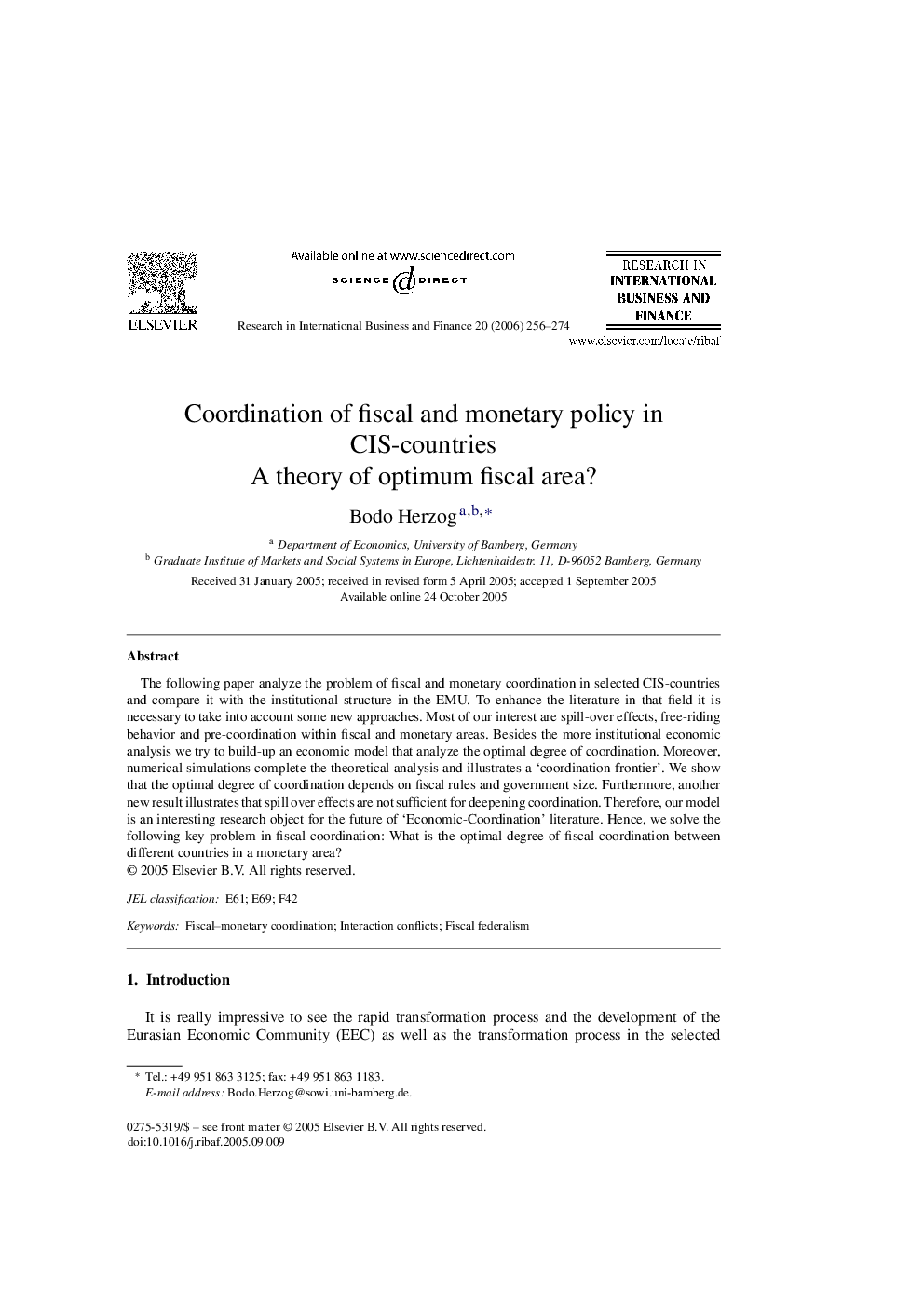| Article ID | Journal | Published Year | Pages | File Type |
|---|---|---|---|---|
| 1003273 | Research in International Business and Finance | 2006 | 19 Pages |
The following paper analyze the problem of fiscal and monetary coordination in selected CIS-countries and compare it with the institutional structure in the EMU. To enhance the literature in that field it is necessary to take into account some new approaches. Most of our interest are spill-over effects, free-riding behavior and pre-coordination within fiscal and monetary areas. Besides the more institutional economic analysis we try to build-up an economic model that analyze the optimal degree of coordination. Moreover, numerical simulations complete the theoretical analysis and illustrates a ‘coordination-frontier’. We show that the optimal degree of coordination depends on fiscal rules and government size. Furthermore, another new result illustrates that spill over effects are not sufficient for deepening coordination. Therefore, our model is an interesting research object for the future of ‘Economic-Coordination’ literature. Hence, we solve the following key-problem in fiscal coordination: What is the optimal degree of fiscal coordination between different countries in a monetary area?
